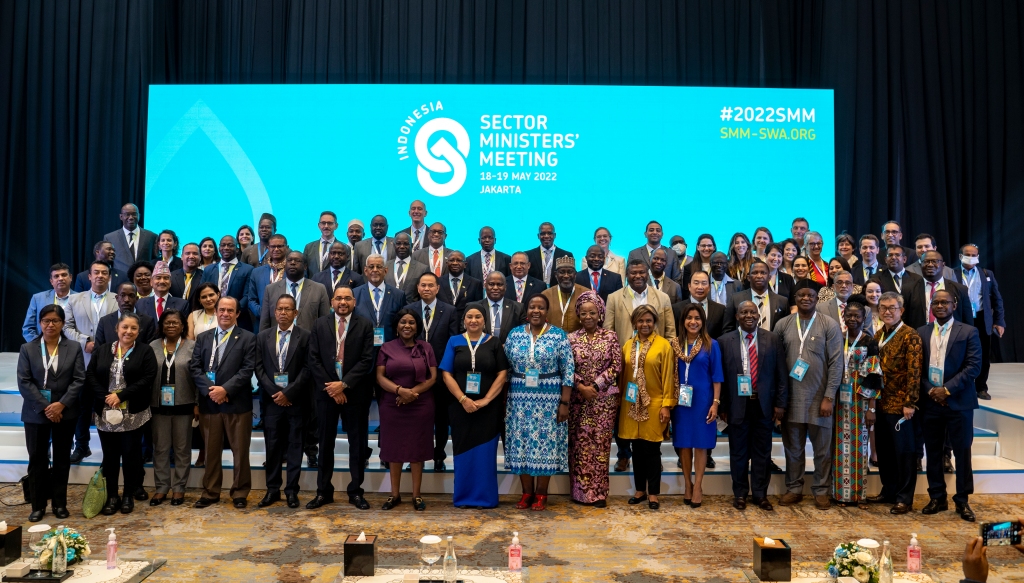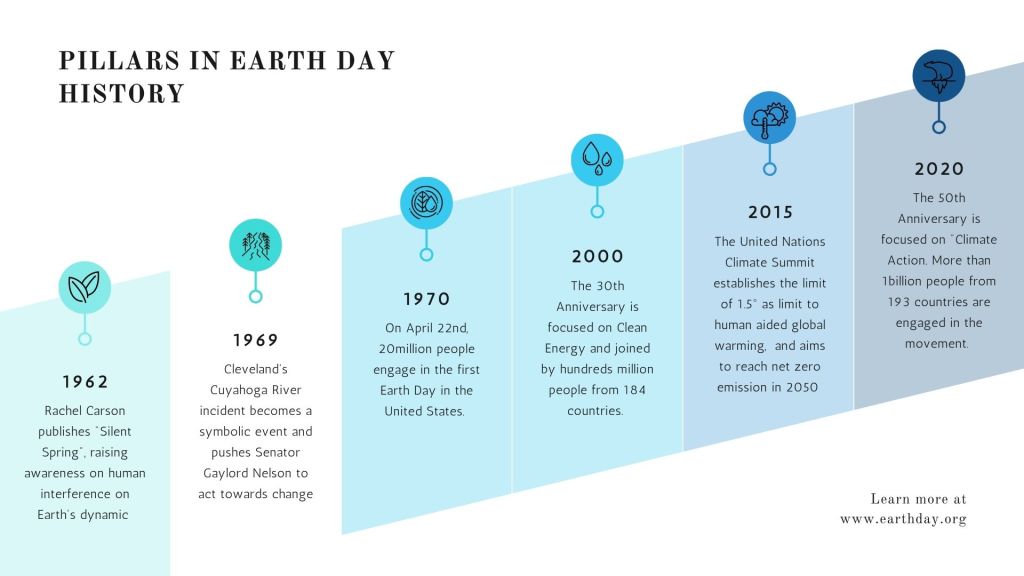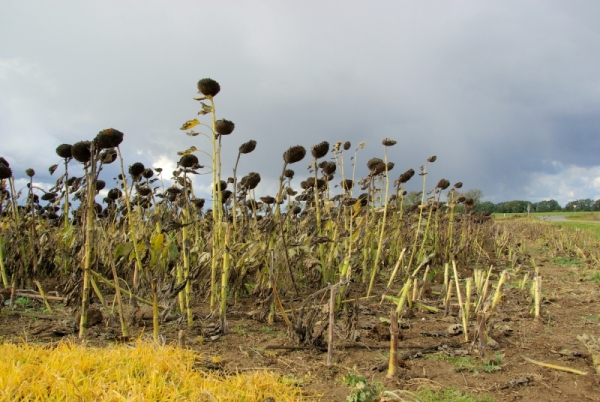Almost half of the world’s population, an estimated 3.6 billion people, live in areas that are potentially water-scarce at least one month per year. With the devastating impacts of climate change, this number is expected to increase to almost 5.7 billion by 2050.
COP27 recognized this urgent need for water security as a priority response to climate change. Indeed, the majority of the investments from the much-heralded Loss and Damage Fund will likely be on water for the most vulnerable countries around the world. Countries must now seize this opportunity by identifying the investments with the greatest potential for transformational improvements in water security.
So, what are the priority investments that maximize the potential for water security? Among a country’s most important priorities is the urgent need to secure steady water supply for its population. Climate change’s increasing volatility of weather patterns have severely impacted countries with either too much water or too little water. These disruptions in water supply have enormous human and economic consequences. The drought in the Horn of Africa has devastated human lives, livestock, and crops that are essential for the survival. The 2021 drought in California is estimated to have cost $1.7 billion in losses and almost 15,000 jobs, and the current torrential rain and flooding, the highest in 30 years, has cost both human lives and severe damage. While the European Environment Agency (EEA) has for some time monitored the drought patterns which have become more severe in Europe since 2015, putting cultivation on the continent under pressure, the European floods of 2021 are estimated to have cost over 200 losses of lives and $12 billion in losses.
Few countries in the world have adequate water storage capacity for their water supply purposes. The great majority of countries suffer from water storage gaps and increasingly variable precipitation, threatening sustainable development and even societal stability. Some large-scale water storage investments have been controversial, resulting in reluctance to engaging in these very necessary investments. Given the recent droughts experienced all over the world, investing in a country’s water storage is an urgent priority.
A recent perspectives paper by GWP, IWMI, and the World Bank makes the case for expanding water storage systems and assessing water storage as a service, rather than a facility.[1] More than volumes of water stored behind a dam or in a watershed, what ultimately matters is the ability to provide different services at a particular time and place with a given level of assurance. Integrated storage systems should be developed and managed to deliver a targeted service standard. This will reduce the costs of new storage development and make the benefits more sustainable.
There is consensus that built and natural storage are fundamentally complementary; however, there is no clear methodology to guide future integrated water storage development. Strong political leadership is needed to ensure water security through large scale multi-purpose water security projects. As noted by the World Bank, a notable example for countries is how Republic of Korea has managed and developed its water resources.[2]
A half century of rapid economic growth and urbanization created significant water management challenges, and Korea’s climate and topography add to the complexity. 70 percent of the country’s annual rain occurs in a concentrated three-month timeframe, from June to September. Steep mountains in the Northwest and flat areas in the Southeast cause 74 percent of Korea’s annual rainfall to evaporate, encouraging floods and leading rainfall to flow directly into the ocean, leaving only 26 percet of rainfall available for use.
Since the 1960’s, Korea has identified water resources management as a core pillar of its national economic development plan. More recently, since the 1990s Korea’s integrated water resources management policies have reflected a new “green” climate resilient development path, combining multiple water security, social, and environmental issues with economic objectives. One of the most ambitious water resources projects the country embarked on under this framework was the Four Major River Restoration project (4MRRP), a multi-purpose, green-growth infrastructure initiative to secure quality water resources, decrease droughts and floods, manage rivers, and improve the environment and Korean quality of life.
The 4MRRP generated notable results, securing an extra 1.17 billion m3 of water, which largely mitigated the effects of droughts and water shortages in the country. Dredging 450 million kms of deposits and sediment along 530 kms widened and deepened waterways and secured flood-flow capacity for main rivers and tributaries at the once-in-200-year flood level. 4MRRP also restored the ecology and created public spaces and river-oriented community development, including the Chonggyecheon stream restoration which brought a vibrant new life and economy to downtown Seoul.
Before the 4MRRP project, emergency downstream requests for water release had occurred 20 times over the past 10 years, but there have not been requests for water release since completion of the project. When a severe, record-breaking drought occurred in 2012, over 4,898 hectares of agricultural land, and 5,160 people, required emergency water supply, and the government was able to maintain stable water supply to users near the four river basins, largely because of stored water in dams and weirs. Finally, 4MRRP project also generated significant economic benefits. Estimated flood damage costs in the four major rivers during the 2011 monsoon season of $8.52 million were less than one-tenth the damage costs caused by similar floods in 1998 ($1.1 billion) and 2006 ($1.6 billion).
Lessons drawn from Korea’s 4RRMP applicable to other countries facing water scarcity and management issues include:
- Preventive water resources management—as opposed to prior damage recovery modes—is necessary to mitigate risks and uncertainties, including the increased risks stemming from climate change. Innovative approaches can be deployed to optimize water resources management. Korea uses Information and Communication Technology to enable authorities to easily monitor, share, and store hydro-meteorological data and operate facilities.
- Water is a cross-cutting resource, requiring integrated water resources management. Although ministries have different functions and jurisdictions, coordinating their efforts optimizes project implementation and operation. Along with ministries, various stakeholders from academia, the public sector, the private sector, and from civil society united under Korea’s “4MRRP Promotion System”. Such a system enables collection of expertise and data to enhance effectiveness of complex and challenging water and environment multipurpose projects.
- Consensus building and full stakeholder participating in decision-making is essential. Cooperative partnerships established in Korea involved politicians, experts, environmental organizations, local communities, and civil society organizations. These partnerships help negotiate conflicting needs and interests during the project.
What makes the 4MRRP a global best practice is the importance of appropriate institutional and governance. The project involved five ministries and 78 local authorities, using a comprehensive and integrated approach. To implement large-scale infrastructure efficiently and effectively involves overcoming institutional, legislative, and governance issues, in addition to technical and financial hurdles, requiring innovative approaches. While it is not the only model, a specialized water agency can play an important coordinating role. K-water, Korea’s state-owned water resources corporation, played a crucial role in implementing 4MRRP on the “hard” construction side of the project, but also on the “soft” coordination aspects.
As a Korean working in global sustainable development, I have seen how the 4 Major Rivers Restoration Project puts the country ahead of the climate curve by enabling a strong foundation for Korea’s water security. Korea has achieved what many other countries are still struggling to do, and can be a role model for these countries, with the essential know-how that these countries need. Multi-purpose water storage projects provide a buffer for managing uncertainty and variability and adds adaptive capacity, thereby enabling modern cities to access water on demand, farmers to grow crops in dry seasons, animals to survive between rains, rivers to flow all year round, hydroelectricity to be generated, and many other important benefits and services. Yet, like other countries, the job is not finished. Climate change has significantly increased the pressures on the world’s water resources. Korea must not lose the opportunity now to continue to strengthen its water security by using the water, rivers, and weirs to build carbon neutrality and a green transition. The Four Major River Restoration Project provides an excellent model for countries to move forward to strengthen water security and a strong basis for continued green growth.
Jaehyang So, GWC TEC Chair
Following a 30 year career at the World Bank Group, Ms. So serves as Senior Advisor to public and private organizations working on sustainable development. Ms. So is the Chair of the Global Water Partnership Technical Committee. The Global Water Partnership, a global network of over 3000 partners in over 80 countries, has championed an integrated approach to water resources management (IWRM), to ensure an equitable and transparent approach that would best support a water-secure world.
The views expressed below are the author’s own.
[1] “Storing water: A new integrated approach for resilient development”. GWP TEC, IWMI, World Bank Group.
[2] “Promoting Green Growth through Water Resources Management: The Case of Republic of Korea,” Green Growth in Action; Korea Green Growth Partnership, World Bank Group












